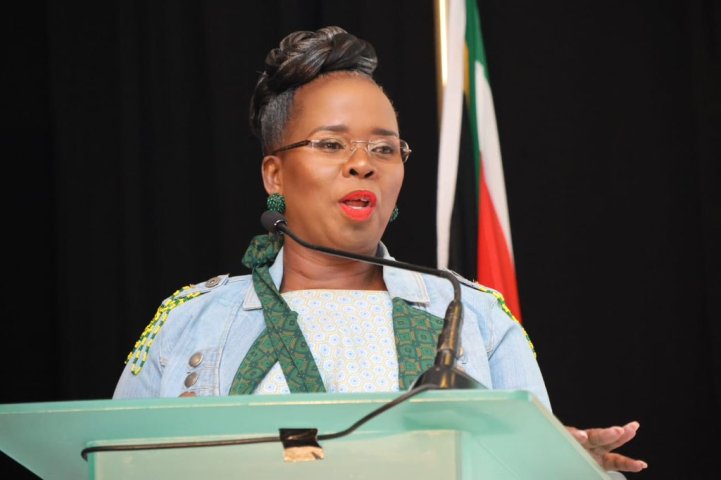Labour Minister Highlights Role of Unions and Government in Driving Inclusive Growth
Minister Nomakhosazana Meth Stresses Collaboration with Labour Federations to Tackle Unemployment and Inequality.

- Country:
- South Africa
At the National Economic Development and Labour Council (NEDLAC) Annual Labour School in Pretoria, Employment and Labour Minister Nomakhosazana Meth emphasized the need for close collaboration with labour federations to create equitable policies and improve enforcement. The Minister highlighted the transformative power of partnerships in addressing South Africa’s socio-economic challenges, including unemployment, inequality, and poverty.
Speaking on Wednesday, Meth praised the pivotal role of unions in advocating for workers’ rights and contributing to governance. “The growth, strength, and influence of unions are indispensable in ensuring that economic gains are equitably shared,” she stated. Meth underscored that the union’s input fosters better law-making and enhances the Department of Employment and Labour’s ability to monitor compliance effectively.
NEDLAC, a statutory social dialogue forum consisting of government, business, labour, and civil society members, was also acknowledged as a cornerstone of inclusive policymaking. Meth stressed the importance of preserving its role in legislative processes to uphold democratic principles.
Addressing South Africa’s Unemployment Crisis
Highlighting the alarming unemployment rate—particularly the 45.5% youth unemployment rate recorded in Q3 2024—Meth warned of a looming “lost generation” facing diminished long-term career prospects. She attributed this crisis to structural inequalities and called for holistic solutions aligned with frameworks like the National Development Plan (NDP), the Economic Reconstruction and Recovery Plan (ERRP), and the Medium-Term Development Plan (MTDP) 2024–2029.
Meth reaffirmed the department’s expanded mandate post-2019, which now includes actively driving job creation alongside regulating labour standards. This mandate is built on three core pillars:
- Harmonizing multi-departmental initiatives to maximize their impact.
- Leveraging data-driven insights to shape policies and anticipate skill demands.
- Streamlining job creation projects through partnerships with government, business, and civil society.
Labour Inspection Expansion and Enforcement
As part of its strategy, the department plans to increase the number of labour inspectors from 2,000 to 20,000, Meth announced last year. These inspectors are critical in ensuring compliance with labour laws and achieving the department’s employment and governance goals.
The Minister highlighted the importance of partnerships with organised labour, urging collective efforts to tackle unemployment, inequality, and poverty. “Every policy, programme, and partnership must bring us closer to an economy where dignified, productive work is available to all,” she emphasized.
Call for Unified Action
Meth called on all stakeholders—government, labour, business, and civil society—to strengthen their collaboration. She expressed gratitude to labour unions for their vigilance in addressing workplace issues and urged them to continue their activism.
“The future of work demands unity, innovation, and unyielding determination. Together, we can ensure that South Africa’s commitment to inclusive growth becomes a lived reality,” Meth concluded.
Additional Insights
The Minister announced that the department is exploring new job creation avenues in emerging industries such as renewable energy, technology, and infrastructure development. Special emphasis is being placed on upskilling the workforce to meet the demands of these sectors.
Moreover, Meth indicated that a partnership initiative with international labour organizations is in development to share best practices and access funding for innovative employment programs. She noted that South Africa is engaging with global experts to design policies that align with future workplace trends.
The NEDLAC Labour School session closed with calls for a unified approach to South Africa’s economic challenges, with stakeholders committing to collaborate on innovative and sustainable solutions.










